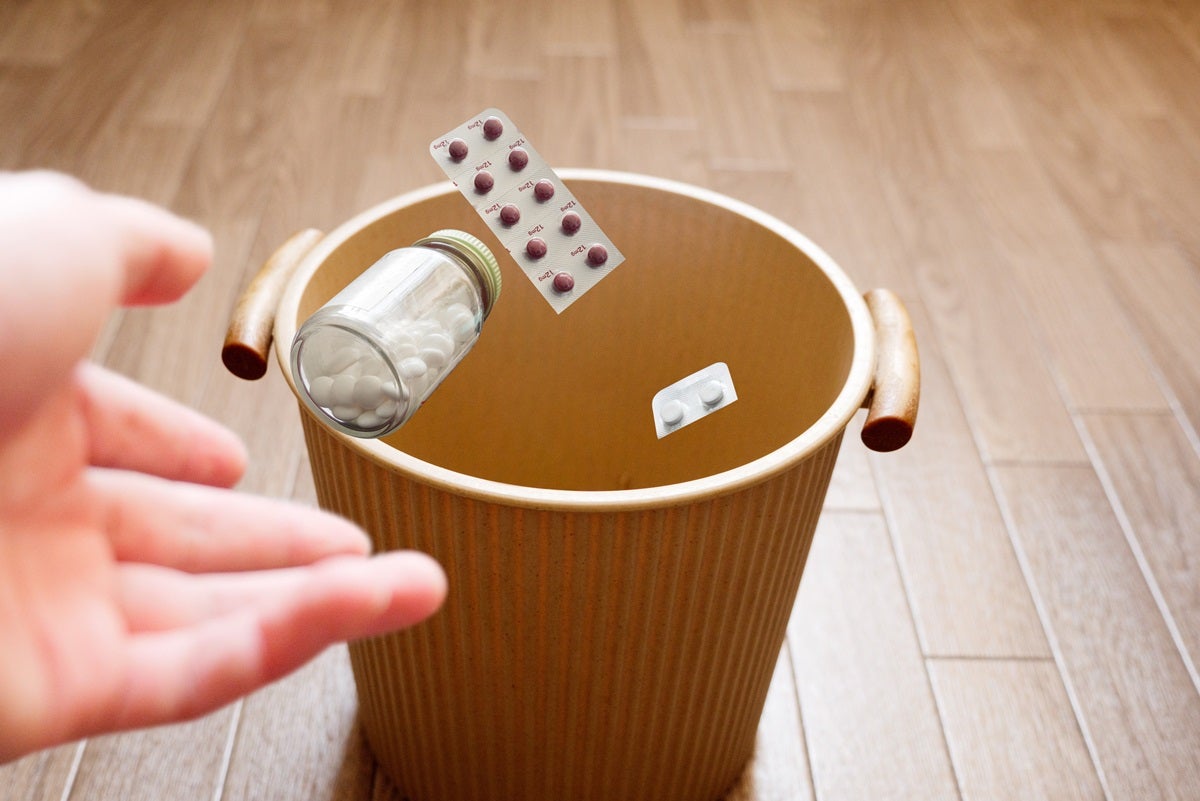Ever wondered what to do with expired medicines or unused medicine? Proper disposal of prescription drugs is crucial not only for you and your family’s safety, but also for the environment. The disposal of expired medication should never be taken lightly. Incorrect methods can lead to accidental ingestion, potential misuse, or harm to our planet. We've got the scoop on how to dispose of medication safely, offering you peace of mind and helping to protect your community.
Why Dispose of Extra Medications Properly?
First, I recommend everyone dispose of all extra medications. There are no good reasons to keep old pain prescriptions, unfinished antibiotics, or other discontinued medications. It may feel wasteful, but the benefit of disposing the old medication far exceeds the risks associated with keeping it around the house.
When it comes to expired medicines, the impact of improper disposal can be far-reaching. Whether it's tossing them in the trash or flushing them down the toilet, these actions can contaminate soil and water. That would pose risks to wildlife and aquatic systems. Unused medicine left unattended at home can also increase the likelihood of accidental ingestion by children or pets. It may also contribute to substance misuse. That's why Saint Alphonsus is committed to spreading awareness on how to dispose of medication the right way. With safe disposal methods like take-back programs, we aim to minimize the environmental impact of pharmaceutical waste and prevent hazards associated with leftover medications.
How to Dispose of Prescription Drugs
So, you have extra medications. What's next? Participating in medication take-back programs is one of the most secure ways to dispose of prescription drugs. These programs, often hosted by pharmacies, law enforcement, and community groups, provide an effective method to return unused medicine, reducing misuse and accidental ingestion risks.
But what if take-back programs aren't available? Here's how to dispose of medication at home. Mix medicines with undesirable substances like coffee grounds, dirt, or kitty litter. Seal the mixture in a plastic bag or container to prevent leakage. Remove personal information from medication bottles before disposal. Flushing medications is only advised if the FDA (Food and Drug Administration) specifically instructs it due to high overdose or misuse risks. For example, the most common medication with instructions to flush are fentanyl patches, which are usually used for cancer pain. These practices ensure the safety of your home and the protection of the environment.
Finding Local Disposal Sites for Expired Medicines
Looking for where to dispose of extra medications? The State of Idaho manages a website that can tell you the location of the nearest prescription drug disposal location. You can find that information at https://odp.idaho.gov/prescription-drug-take-back-program/.
Local pharmacies and healthcare providers can also guide you on how to dispose of medication. Not too long ago it was extremely difficult to identify a medication take-back location. Today, many pharmacies host medication take-back programs, offering a convenient way to dispose of prescription drugs. Your healthcare provider might also suggest reputable disposal sites for your expired medicines.
Community efforts play a vital role in promoting safe disposal of expired medication. Public health departments and local organizations often organize drug take-back events, allowing you to dispose of extra medications safely and anonymously. These events help prevent misuse and spread awareness about proper disposal. Stay updated on local initiatives to ensure your unused medicine is disposed of effectively and responsibly.

Jeremy Crowfoot, is a PharmD at the Saint Alphonsus Geriatrics Clinic and Memory Center.

